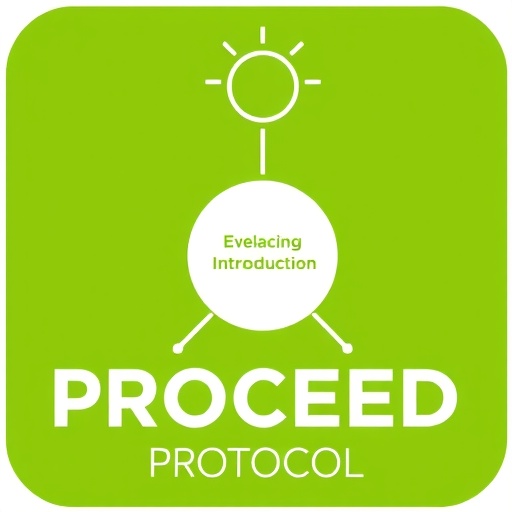In recent years, the scientific community has grappled with the persistent challenge of translating cutting-edge research findings into practical, real-world applications that benefit society. While the generation of evidence-based knowledge has accelerated exponentially, the mechanisms for effectively disseminating this knowledge remain inconsistent and often ineffective. Addressing this critical gap, a groundbreaking study protocol titled PROCEED (Process-Based Competence Evaluation for Evidence-Based Dissemination) has been introduced, promising to revolutionize how dissemination competence is evaluated and enhanced within research and clinical settings.
At its core, PROCEED aims to untangle the complex web of skills, strategies, and processes that underpin successful dissemination of evidence-based practices. Unlike traditional approaches that merely quantify dissemination outputs, this protocol emphasizes a process-oriented perspective, meticulously evaluating the competencies involved at each stage of dissemination—from initial knowledge synthesis to final implementation in diverse contexts. By doing so, it seeks to establish a nuanced understanding of what constitutes effective dissemination competence, recognizing that the pathway from evidence to impact is neither linear nor uniform.
The impetus for such an evaluation framework emerges from a growing recognition that dissemination is more than just broadcasting findings; it requires tailoring communication to target audiences, navigating institutional and cultural barriers, and fostering sustained engagement among stakeholders. PROCEED’s approach is thus framed within implementation science, integrating theoretical constructs with pragmatic assessment tools designed to capture the dynamic interplay between disseminators, recipients, and contextual variables. This multifaceted methodology positions PROCEED at the forefront of advancing dissemination science, offering potential to inform training programs and policy decisions.
One of the most compelling aspects of the PROCEED protocol is its emphasis on process-based evaluation metrics that move beyond outcome-oriented measures. Rather than solely focusing on whether dissemination activities lead to behavior change or policy adoption, the protocol scrutinizes the competencies that drive these outcomes. This shift in focus acknowledges that dissemination success is predicated on intermediate processes such as audience analysis, message framing, and feedback incorporation, all of which require distinct skill sets that can be systematically assessed and developed.
The study protocol details innovative mixed-method assessment strategies, combining quantitative scales with qualitative interviews to derive a comprehensive competence profile. This design facilitates the capture of both measurable behaviors and underlying cognitive and motivational factors that guide dissemination efforts. By doing so, PROCEED not only identifies strengths and gaps in individual and organizational capacity but also elucidates contextual enablers and barriers, thereby informing tailored capacity-building interventions.
Fundamentally, PROCEED challenges existing paradigms by proposing that dissemination competence is multidimensional and evolves over time as disseminators gain experience and adapt to diverse scenarios. The protocol’s longitudinal perspective permits tracking competence development, thereby offering insights into effective training modalities and professional development pathways that can sustain and amplify dissemination impact over extended periods.
Moreover, the PROCEED framework incorporates principles of equity and inclusivity, recognizing that effective dissemination must account for diverse cultural, socioeconomic, and linguistic factors to ensure that evidence-based interventions reach and resonate with marginalized populations. This commitment to social justice reinforces the protocol’s relevance in contemporary public health and clinical practice environments, where addressing disparities remains a paramount goal.
Technically, the protocol incorporates rigorous psychometric validation procedures to ensure that the competence assessment instruments possess reliability and validity across different settings and populations. This methodological rigor underpins the credibility and generalizability of the findings, facilitating broader adoption of the tools within academic, clinical, and policy-making domains.
The dissemination process assessed by PROCEED encompasses several interconnected domains, including knowledge translation, communication skills, stakeholder engagement, and organizational navigation. By dissecting these domains, the protocol offers a granular understanding of dissemination activities, enabling precise identification of leverage points for improvement. Such granularity represents a significant advancement over prior frameworks that treated dissemination as a monolithic construct.
Importantly, the study protocol anticipates potential challenges in operationalizing process-based competence evaluations, such as variability in institutional resources, differing expectations among stakeholders, and the inherently dynamic nature of implementation contexts. Through iterative piloting and stakeholder consultation, PROCEED incorporates adaptive mechanisms to refine its tools and procedures, enhancing their usability and relevance in real-world settings.
The implications of adopting the PROCEED framework extend beyond academic research, touching upon healthcare delivery, policy formulation, and community engagement. By equipping professionals with a structured means to evaluate and enhance their dissemination competencies, the protocol promises to accelerate the translation of evidence into impactful actions, ultimately improving health outcomes and population well-being.
As knowledge dissemination increasingly embraces digital platforms and innovative communication technologies, PROCEED’s process-oriented lens ensures that competence assessments remain attuned to emerging dissemination modalities. This future-proofing aspect is crucial in a rapidly evolving information landscape characterized by the proliferation of social media, virtual collaborations, and data-driven decision-making.
The PROCEED protocol also aligns synergistically with broader implementation science frameworks, complementing ongoing efforts to standardize metrics and best practices in knowledge translation. By filling a notable void in competence assessment, PROCEED advances a holistic approach that marries theoretical rigor with practical applicability, setting a new standard for dissemination science.
In sum, the introduction of the PROCEED study protocol marks a pivotal step toward refining how we understand, assess, and cultivate the competencies necessary for effective evidence-based dissemination. Its sophisticated, process-based methodology holds promise for transforming dissemination from an ad hoc activity into a scientifically grounded discipline with clear pathways for professional development and impact optimization. As the research community embraces this paradigm shift, PROCEED may well become instrumental in bridging the longstanding divide between evidence generation and meaningful societal change.
Subject of Research:
Evaluation of dissemination competence in evidence-based practice through a process-based framework.
Article Title:
A process-based competence evaluation for evidence-based dissemination (PROCEED): a study protocol.
Article References:
Gorinelli, S., Sairanen, E., Hofmann, S.G. et al. A process-based competence evaluation for evidence-based dissemination (PROCEED): a study protocol. BMC Psychol 13, 912 (2025). https://doi.org/10.1186/s40359-025-03228-4
Image Credits: AI Generated




